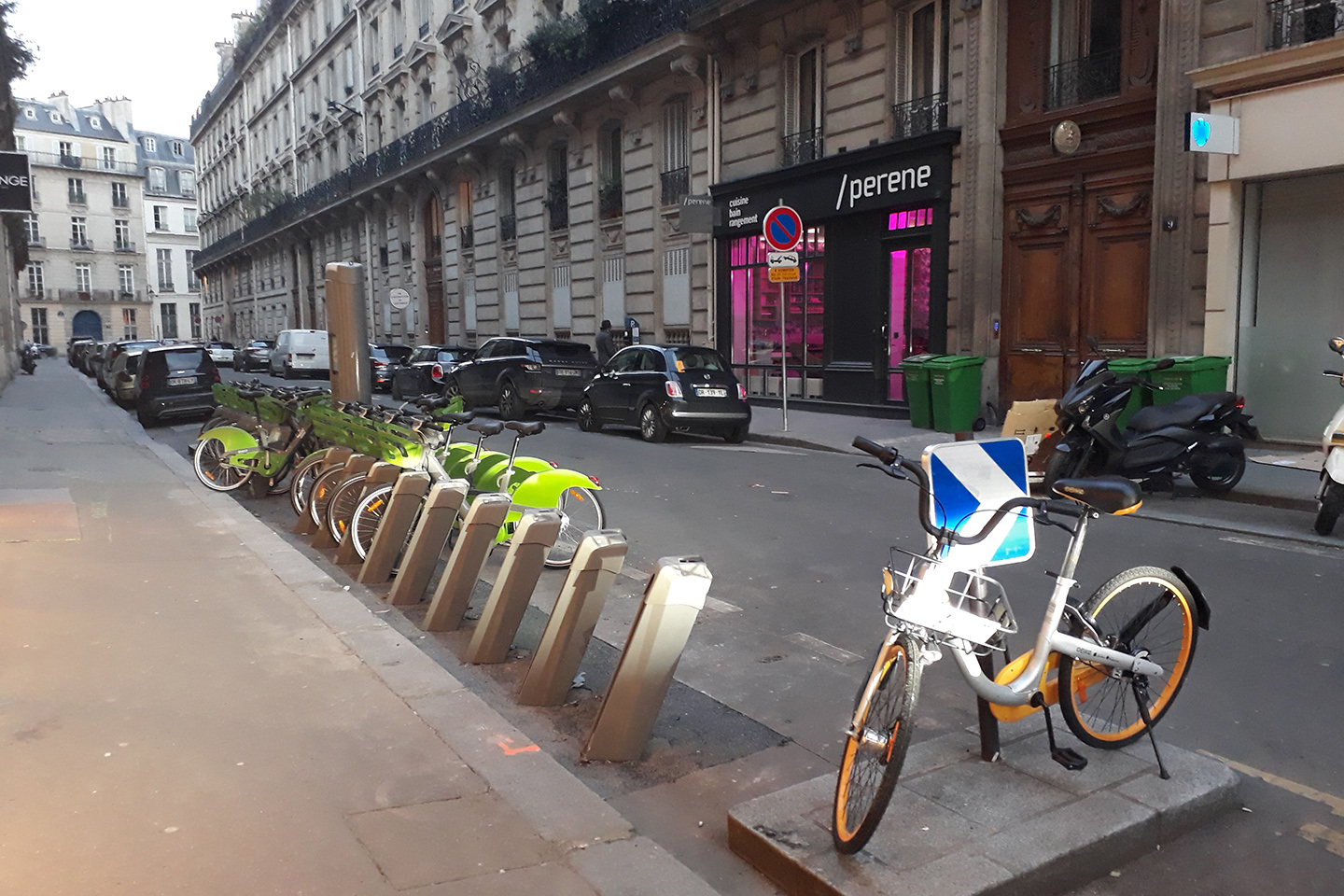Will Chinese Apps Redefine the Future of Bike-Sharing in France?
In April 2017, Ofo installed its first dockless bikes in Cambridge. Three months later, Mobikes arrived in Manchester. When the seemingly-booming Chinese free-floating bike-sharing industry made its way into Paris streets in October 2017, it seemed on track to create new mobility habits in a city eager to reduce combustion-engine cars on its roads.
Three months later, the hype is slowing down. True, the dockless bike sharing system is spreading: after Paris, Indigo Wheel has invaded Metz and is developing its activity in Bordeaux; Ofo is planning to be present in five French cities before the end of 2018. However, some free-floating operators are facing unexpected challenges: Gobee.bike has been forced to remove its bike from Lille, Reims and Brussels on the 10th of January due to vandalism issues.
Even if the growth does not seem to be as streamlined as it was hoped for, the companies involved continue to receive strong financial support. Is this trend for dockless bike sharing systems sustainable?
Let’s state the obvious: the industry does not seem to be viable. More than 70 companies have entered the dockless bike sharing market in China since 2015, but two of them only, Mobike and Ofo, own 90% of China’s dockless fleet. All these companies are continuously losing money since the production costs are not covered by the profit made from the bicycles’ use. Bluegogo, the third largest Chinese company, went bankrupt in November 2017.
Yet, these companies are seen as profitable: the data their customers produce is extremely valuable. In fact, Mobike or Ofo define themselves first as digital companies and only secondly as mobility services companies: the information they gather from their customers (habits, locations, behaviors or payment histories) is useful for merchandising firms. Their aim today is to secure a monopolistic position, and therefore, to possess the best marketable data. That explains why the mobility war we are witnessing is so fierce.
The situation in Paris is particularly representative of the issues at stake. A bike-sharing docking system called Velib had been subsidized by the municipality since 2007. As the Velib scheme is facing major issues in early 2018 due to the choice of another contractor for the service, free-floating companies appear simpler (bikes can be left anywhere, regardless of any available spot in a docking station). The competition between Velib and its competitors is now heating on, as more and more companies are launching their dockless bike-sharing services and as the city of Paris tries to regulate their use of the roads and sidewalks.
The future of mobility in Paris will depend on the public policies implemented by the municipality as well as on the competitiveness of the subsidized docking system, which is greatly appreciated by an important share of the population. As the number and length of bicycle lanes is planned to increase in the future, this undergoing mobility war represents both a challenge for regulation and a potentiality for the continuing growth of alternative mobility in France.
-
2018/03/19

-
Paris

-
Nicolas Toraille


the other map
Explore arrow
arrow
loading map - please wait...




